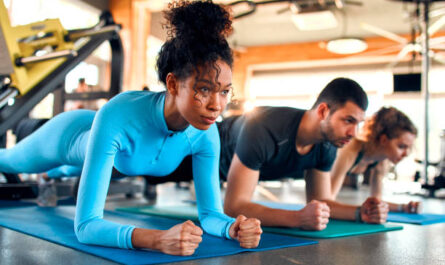Relationships are an integral part of our lives, influencing various aspects of our emotional, mental, and even physical well-being. Whether it’s romantic, familial, or friendships, the people we interact with have a profound impact on how we see ourselves, our health, and our body confidence. Cultivating healthy relationships that uplift, support, and encourage us is crucial to fostering a sense of well-being and a positive self-image. This article explores how to build and maintain such relationships and the positive effects they can have on body confidence and overall health.
1. Understanding the Connection Between Relationships and Well-Being
Well-being is a holistic concept that includes emotional, physical, social, and psychological health. It is closely tied to the relationships we form, as human beings are inherently social creatures. Positive relationships provide a strong support system, offering comfort, encouragement, and a sense of belonging. Conversely, toxic or unhealthy relationships can lead to stress, anxiety, and self-doubt, all of which can negatively impact mental and physical health.
Emotional well-being is deeply influenced by how loved and supported we feel. Healthy relationships create an environment where individuals feel seen, heard, and valued. This emotional support system can buffer against stress and anxiety, making it easier to manage life’s challenges. Additionally, feeling loved and accepted can help bolster one’s sense of self-worth and, consequently, body confidence.
2. What Makes a Healthy Relationship?
Healthy relationships are based on mutual respect, trust, communication, and understanding. In these relationships, both individuals feel safe to express themselves without fear of judgment or manipulation. They can rely on each other for support and are encouraged to grow together.
Here are key characteristics that define a healthy relationship:
- Respect: In a healthy relationship, both people honor each other’s opinions, feelings, boundaries, and individuality. Respectful relationships avoid belittling or criticizing and instead promote each person’s self-esteem.
- Trust: Trust is a cornerstone of any healthy relationship. It allows individuals to feel safe, supported, and secure. When trust is present, partners or friends feel comfortable being vulnerable and honest with one another.
- Communication: Open and clear communication is vital. Healthy communication involves active listening, being able to share thoughts and feelings without fear of being dismissed, and working through conflicts in a constructive manner.
- Empathy: Empathy is the ability to understand and share the feelings of another person. In a healthy relationship, both parties practice empathy by being supportive, caring, and validating each other’s emotions.
- Boundaries: Healthy relationships honor personal boundaries. Both individuals should feel free to say “no” when they are uncomfortable, and these boundaries should be respected.
- Encouragement: In positive relationships, individuals encourage each other to pursue their passions, goals, and personal growth. Rather than fostering competition or jealousy, a healthy relationship celebrates each person’s success and individuality.
3. The Role of Healthy Relationships in Body Confidence
Body confidence is the belief in one’s physical appearance, but it is influenced by many factors, including how we perceive ourselves and how others treat us. Positive relationships can significantly contribute to enhancing body confidence in the following ways:
- Affirmation and Validation: In relationships where love and appreciation are expressed openly, individuals are more likely to feel secure in their physical appearance. Compliments, kind words, and gestures of affection can help reinforce a positive self-image.
- Acceptance of Imperfections: In a healthy relationship, individuals feel comfortable being their authentic selves, including their physical appearance. When someone loves and accepts us as we are—flaws and all—it becomes easier to embrace our own bodies without feeling the need to conform to unrealistic beauty standards.
- Reducing Body-Shaming: Toxic relationships often involve criticism or shaming of one’s body. In contrast, healthy relationships foster an environment of mutual respect, where body-shaming is absent. This kind of supportive environment enables people to feel comfortable in their skin and more confident about their appearance.
- Modeling Positive Behaviors: In relationships where body positivity is valued, individuals tend to model those behaviors for one another. For example, if one partner practices self-care and promotes a healthy body image, the other is likely to adopt similar behaviors, leading to a mutual increase in body confidence.
4. Cultivating Relationships That Enhance Body Confidence
If you seek to cultivate relationships that support your well-being and body confidence, it’s essential to be intentional about the kinds of people you surround yourself with. Here are some strategies for building and nurturing such relationships:
a) Choose Supportive, Encouraging People
The people in your life should lift you up, not tear you down. Whether in friendships, family, or romantic relationships, it’s important to surround yourself with individuals who support your goals and promote a positive self-image. Avoid relationships where criticism or negative comments about your body or appearance are frequent.
If you notice that a person consistently brings negativity into your life, consider setting boundaries or reassessing that relationship. Healthy relationships should provide encouragement and reinforce your sense of self-worth.
b) Open Up About Your Body Confidence Journey
Vulnerability can deepen connections and foster empathy. Sharing your journey toward body confidence with trusted individuals allows them to better understand your experiences and struggles. It may also encourage open dialogue, allowing you to receive support and perspective from others who might share similar challenges.
c) Be Mindful of Social Media Influences
In today’s digital age, social media plays a major role in shaping how we perceive our bodies. Be mindful of the content you consume and the people you follow. Social media can often promote unrealistic beauty standards, which can negatively impact body confidence. Instead, seek out accounts that promote body positivity, self-love, and diversity in body types.
d) Celebrate Each Other’s Bodies
If you’re in a romantic relationship or close friendship, celebrate each other’s bodies. Compliment each other in ways that highlight not only physical appearance but also inner qualities. Focus on what makes the other person unique and special, rather than just conforming to societal beauty ideals.
e) Engage in Activities That Promote Well-Being
Physical and mental well-being often go hand in hand. Engaging in activities such as yoga, hiking, cooking healthy meals together, or taking part in creative pursuits can strengthen bonds while also promoting physical health. These activities create shared experiences that focus on wellness rather than appearance alone, fostering a healthier outlook on the body.
f) Set Boundaries Around Body Talk
Sometimes, casual discussions about dieting, weight loss, or body image can inadvertently perpetuate negative thinking. It’s helpful to set boundaries with friends and loved ones when it comes to these topics. Encourage conversations that center around self-love, healthy habits, and self-care rather than focusing solely on physical appearance.
5. How Healthy Relationships Impact Overall Health
In addition to enhancing body confidence, healthy relationships also contribute to overall well-being by promoting emotional and physical health:
- Stress Reduction: Healthy relationships can serve as buffers against stress. When you feel supported and loved, you are better equipped to handle the ups and downs of life. Chronic stress, in turn, is linked to a variety of physical health problems, including high blood pressure, sleep disturbances, and weakened immune function. Supportive relationships reduce stress by offering comfort and stability.
- Mental Health Benefits: Positive social connections are essential for mental health. They help prevent feelings of loneliness, depression, and anxiety. The emotional support provided by friends, family, or partners can increase happiness and resilience, making it easier to cope with challenges.
- Encouraging Healthy Lifestyle Choices: In healthy relationships, partners or friends often encourage each other to make healthy lifestyle choices, such as exercising, eating well, and managing stress. These habits contribute to both physical well-being and body confidence by fostering a balanced approach to health.
6. Conclusion
Cultivating healthy relationships is one of the most powerful ways to support your well-being and enhance body confidence. When you surround yourself with people who respect, encourage, and celebrate you, it becomes easier to feel good about yourself and your body. Healthy relationships are grounded in trust, communication, empathy, and mutual support. They provide the foundation for emotional resilience, self-love, and the pursuit of a fulfilling life. By intentionally building relationships that prioritize well-being, respect, and body positivity, you can create an environment where both your self-esteem and health can thrive.
Remember, the journey to body confidence is deeply influenced by the relationships we nurture. By fostering connections that uplift and empower us, we create a strong support system that allows us to embrace ourselves fully—body, mind, and spirit.



